第40章 LIBRARY WORK WITH CHILDREN(1)
A conception of the meaning and the possibilities of children's work interpreted by means of present day social and industrial conditions is given by Henry E.Legler,librarian of the Chicago Public Library,in a paper on "Library work with children,"read at the Pasadena Conference of the A L.A.in 1911.Henry Eduard Legler was born in Palermo,Italy,June 22,1861.He was educated in Switzerland and the United States.In 1889he was a member of the Wisconsin Assembly;from 1890to 1894secretary of the Milwaukee School Board;from 1904to 1909secretary of the Wisconsin Library Commission,and since 1909has been librarian of the Chicago Public Library.In 1912-1913Mr.Legler was President of the A.L.A.
Not long since a man of genius took a lump of formless clay,and beneath the cunning of his hand there grew a great symbol of life.He called it Earthbound.An old man is bowed beneath the sorrow of the world.Under the weight of burdens that seemingly they cannot escape,a younger man and his faithful mate stagger with bent forms.Between them is a little child.Instead of a body supple and straight and instinct with freedom and vigor,the child's body yields to the weight of heredity and environment,whose crushing influence press the shoulders down.
In this striking group the artist pictures for us the world-old story of conditions which meet the young lives of one generation,and are transmitted to the next.It is a picture that was true a thousand years ago;it is a picture that is faithful of conditions today.Perhaps its modern guise might be more aptly and perhaps no less strikingly shown,as it recently appeared in the form of a cartoon illustrating Mrs.Elizabeth Barrett Browning's verse:
The Cry of the Children Do ye hear the children weeping,O my brothers,Ere the sorrow comes with years?They are leaning their young heads against their mothers,And THAT cannot stop their tears.
The young lambs are bleating in the meadows,The young birds are chirping in the nest,The young fawns are playing with the shadows,The young flowers are blowing towards the west--But the young,young children,O my brothers,They are weeping bitterly!They are weeping in the playtime of the others,In the country of the free.
Do you question the young children in the sorrow,Why their tears are falling so?The old man may weep for his to-morrow Which is lost in long ago;The old tree is leafless in the forest,The old year is ending in the frost,The old wound,if stricken,is the sorest,The old hope is hardest to be lost;But the young,young children,O my brothers,Do you ask them why they stand Weeping sore before the bosoms of their mothers,In our happy Fatherland?
Go out,children,from the mine and from the city,Sing out,children,as the little thrushes do.Pluck your handfuls of the meadow cowslips pretty,Laugh aloud to feel your fingers let them through!
Only in recent years has there grown into fulness a conception of what the duty of society is towards the child.For near two thousand years it was a world of grown-ups for grown-ups.
Children there have been--many millions of them--but they were merely incidental to the scheme of things.Society regarded them not as an asset,except perhaps for purposes of selfish exploitation.If literature reflects contemporary life with fidelity,we may well marvel that for so many hundreds of years the boys and girls of their generation were so little regarded that they are rarely mentioned in song or story.When they are,we are afforded glimpses of a curious attitude of aloofness or of harshness.Nowhere do we meet the artlessness of childhood.In a footnote here,in a marginal gloss there,such references as appear point to torture and cruelty,to distress and tears.In the early legends of the Christians,in the pagan ballads of the olden time,what there is of child life but illustrates the brutal selfishness of the elders.
Certainly,no people understood as well as did the Jews that the child is the prophecy of the future,and that a nation is kept alive not by memory but by hope.Childhood to them was "the sign of fulfillment of glorious promises;the burden of psalm and prophecy was of a golden age to come,not of one that was in the dim past."So in the greatest of all books we come frequently upon phrases displaying this attitude:
"There shall yet old men and old women dwell in the streets of Jerusalem,and every man with his staff in his hand for very age.
And the streets of the city shall be full of boys and girls playing in the streets thereof.""They shall remember me in far countries;and they shall live with their children."And most significant of all:"Suffer the little children to come unto me."In the centuries intervening,up to a hundred years ago,the men of pen and the men of brush give us a few touches now and then suggestive of childhood.However,they are observers rather than interpreters of childhood and its meaning.In the works of the great master painters,the dominant note is that of maternity,or the motive is devotional purely.Milton's great ode on the Nativity bears no message other than this.In the graphic tale that Chaucer tells about Hugh of Lincoln,race hatred is the underlying sentiment,and the innocence of the unfortunate widow's son appears merely to heighten the evil of his captors and not as typical of boyhood.
Of the goodly company known collectively as the Elizabethan writers,silence as to the element of childhood is profound.In all the comedies and the tragedies of the greatest dramatist of all,children play but minor parts.In none of them save in King John,where historic necessity precludes the absence of the princes in the Tower,they might be wholly omitted without impairment of the structure.In the Merry Wives of Windsor,Mistress Anne Page's son is briefly introduced,and is there made the vehicle for conversation which in this age might be regarded as gross suggestiveness.